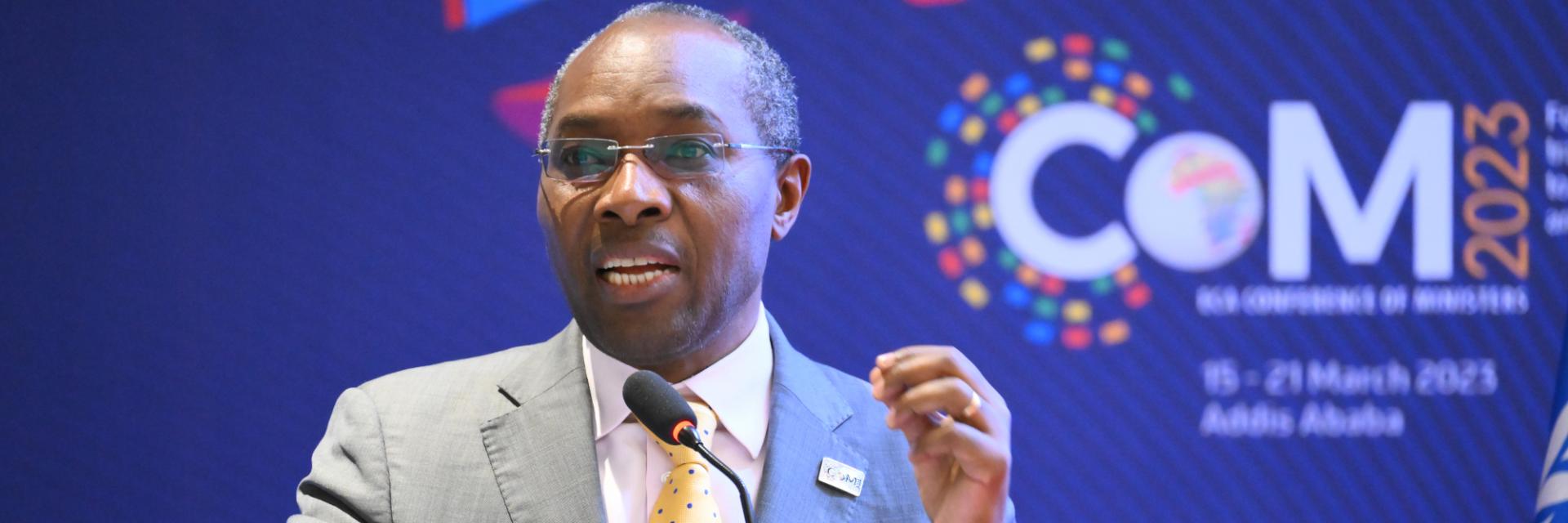
The report, which is based on monitoring frameworks and tools, including the indicators developed by the ECA, the African Union Commission and the African Development Bank was presented to experts meeting ahead of the 20-21 March ministerial segment of the Conference of African Ministers of Finance, Planning and Economic Development taking place in Addis Ababa, Ethiopia.
Member states will need to address integration challenges, which include inadequate financial resources; poor infrastructure networks; increasing violence, terrorism and political instability. Furthermore, the integration agenda is experiencing slow implementation of policies and agreements. For instance, the Protocol on the Free Movement of Persons, Right of Residence and Right of Establishment, needs ratification because, “It is the bedrock of deepening integration as it interacts with the ability to move goods and services and help to optimise the AfCFTA,” stressed Karingi.
“Collective efforts are required from all member States, regional economic communities, key partners and stakeholders to realize the economic benefits of integration and the African Continental Free Trade Area,” he said.
Macroeconomic integration
According to Karingi, to support member States in their formulation and implementation of economic policy and enhance macroeconomic integration, ECA has developed a prototype macroeconomic model and provided support and training in 15 countries. On the fiscal side, ECA supported taxation policy reform and revenue collection in Ethiopia, Kenya, Tanzania and Zambia.
Infrastructure and energy sectors
Africa remains constrained by huge infrastructure gaps, with an estimated annual financing need of between $130 billion and $170 billion, and an annual financing gap of between $68 billion and $108 billion. But improvements were reported in access to information and communications technology constituting an important driver of the African infrastructure development index. Digitalization in Africa was further accelerated by the pandemic, creating greater potential for trade and business growth.
“The COVID-19 pandemic and the war in the Ukraine have however, worsened public deficits and the debt burden, which have reduced infrastructural investment in Africa,” said Karingi.
Energy price increases, exacerbated by the war in Ukraine, has put a strain on African countries, in particular on those that are net energy importers. Africa’s energy demand is mainly driven by Nigeria, South Africa and North African countries.
Participants from Burkina Faso, Chad, Tanzania, Cote d’Ivoire, Tanzania, raised concerns about the worsening insecurity, poor infrastructure, high cost of communication across the borders that are hindering the integration process.
Antonio Pedro, ECA Acting Executive Secretary said collaborative efforts, including the United Nations, the African Union, and regional economic communities, have continued to be deployed to respond to threats to peace and security, to participate in the management and resolution of conflict, and to stem the tide of terrorism and coups on the continent, albeit with mixed results.
In West Africa and the broader Sahel area, he said ECA through its West African office in partnership with the African Union, ECOWAS and other key players continue to fight the spread of violence, terrorism and drug trafficking while showcasing the opportunities available in the region.
“To foster regional integration on the continent, ECA will continue to prioritize the support that it provides to member States, regional economic communities, the African Union Commission and the secretariat of the African Continental Free Trade Area towards the implementation of the free trade area,” said Pedro.
For more: https://www.uneca.org/cfm2023
Follow the conversation on social media @ECA_Official and #CoM2023











Comments